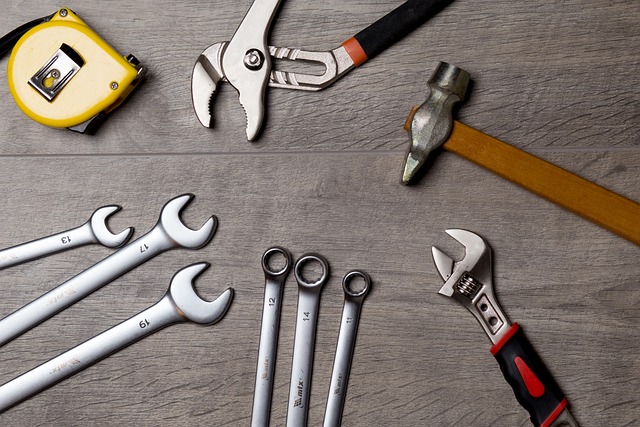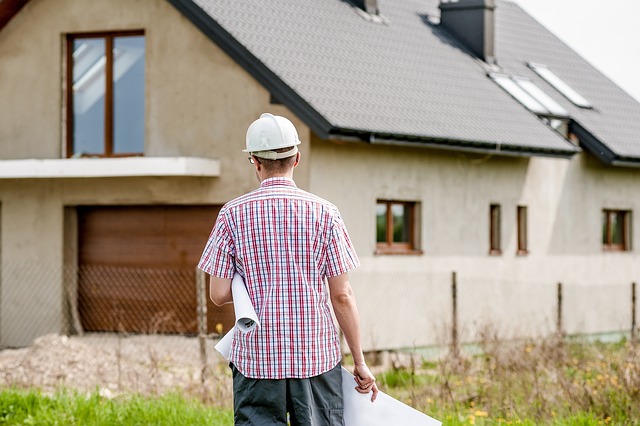To maintain your HVAC system's efficiency and extend its lifespan, regular filter replacements are a must. These filters clean the air by capturing dust and pollutants, preventing them from circulating indoors. Over time, as they accumulate these contaminants, they can restrict airflow, leading to reduced HVAC performance, higher energy bills, and compromised indoor air quality. To prevent such issues, follow the manufacturer's recommended filter replacement schedule or adjust it based on your system's usage. Professional HVAC repair services can assist with selecting the right filters and determining the best replacement frequency, optimizing your system's performance and saving on utility costs. Ignoring this maintenance can result in increased energy consumption, poor air quality, and potentially costly repairs down the line. Regularly replacing air filters is key to ensuring that your HVAC system operates at peak efficiency, which is crucial for both your comfort and saving money in the long term. Remember, timely HVAC repair and maintenance are vital for a cleaner, more energy-efficient home environment.
Ensuring your home’s HVAC system operates at peak efficiency is paramount for comfort and energy savings. A key factor in this performance is the regular replacement of HVAC filters. This comprehensive guide delves into the critical role of HVAC filters, their impact on system performance, and the steps to effectively maintain them. From understanding the importance of these filters to recognizing signs they need replacement, we’ll explore practical advice for selecting the right filter type, following safety precautions, and ensuring optimal efficiency. Additionally, insights into professional HVAC repair and maintenance services, along with a cost-benefit analysis of maintaining clean filters, will empower you to make informed decisions about your system’s upkeep. With regular maintenance and attentive care, your HVAC system can provide reliable comfort for years to come, and this article is your guide to achieving just that.
Understanding the Importance of HVAC Filters

Regular maintenance is pivotal in prolonging the lifespan and ensuring the efficiency of your HVAC system, and a key aspect of this upkeep is the replacement of worn filters. These filters play a crucial role in maintaining air quality within your home or business by capturing dust, pollen, and other airborne debris before they circulate through the system. Over time, filters become clogged with accumulated contaminants, which can restrict airflow and reduce the overall performance of the HVAC unit. This not only compromises heating and cooling efficiency but can also lead to a spike in energy consumption and higher utility bills. By replacing dirty or blocked filters with clean ones, you can restore optimal system functionality, ensure better indoor air quality, and potentially extend the lifespan of your HVAC equipment. It’s advisable to inspect and replace HVAC filters regularly, following the manufacturer’s recommended schedule or as needed during peak usage periods. Professional HVAC repair services can assist in determining the right filter type for your system and provide guidance on the frequency of replacement to keep your environment comfortable and your system running smoothly.
Signs Your HVAC Filter Needs Replacement

When your heating, ventilation, and air conditioning (HVAC) system’s performance begins to wane, it’s often a sign that your filters need attention. A clogged or dirty filter can restrict airflow, leading to a host of issues within your HVAC system. One of the most apparent signs that your HVAC filter requires replacement is an unexpected increase in your energy bills. As the filter becomes dirty, your system has to work harder to distribute conditioned air, consuming more energy and resulting in higher costs. Another indicator is a decrease in air quality. If you notice a rise in dust levels in your home or an increase in allergens, it could be due to a filter that’s no longer effectively trapping these particulates. Additionally, if you observe unusual noises coming from your HVAC unit, such as rattling, popping, or whistling, this may signal a blocked filter impacting the mechanical components of the system. It’s advisable to address these issues promptly through professional HVAC repair services to ensure optimal system performance and longevity. Regular maintenance, including timely filter replacements, is key to maintaining energy efficiency and ensuring the healthy operation of your HVAC system.
Ensuring your HVAC system operates at peak efficiency is paramount for maintaining comfortable indoor environments and extending the lifespan of your heating and cooling equipment. Regularly replacing worn filters, as detailed in this article, is a critical aspect of HVAC maintenance and falls under essential HVAC repair practices. Recognizing the signs that indicate a filter needs replacement—such as reduced airflow or a spike in energy costs—empowers homeowners to take proactive steps towards better system performance. By adhering to this simple yet effective routine, you can safeguard your HVAC system against unnecessary strain and prevent potential health issues associated with compromised air quality. In conclusion, for optimal HVAC functionality and cost savings, make it a habit to monitor and replace filters as needed—it’s a small task that makes a significant difference in the health of your home and HVAC system.
